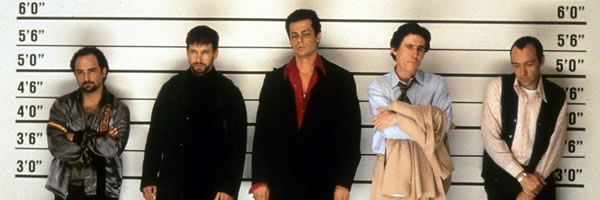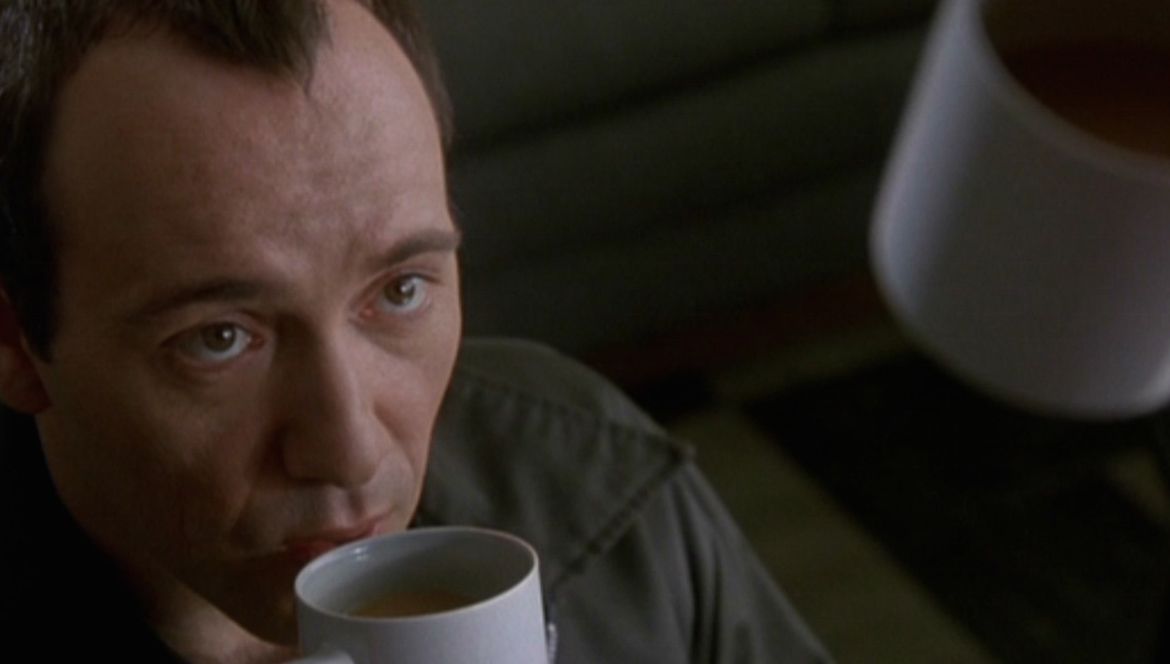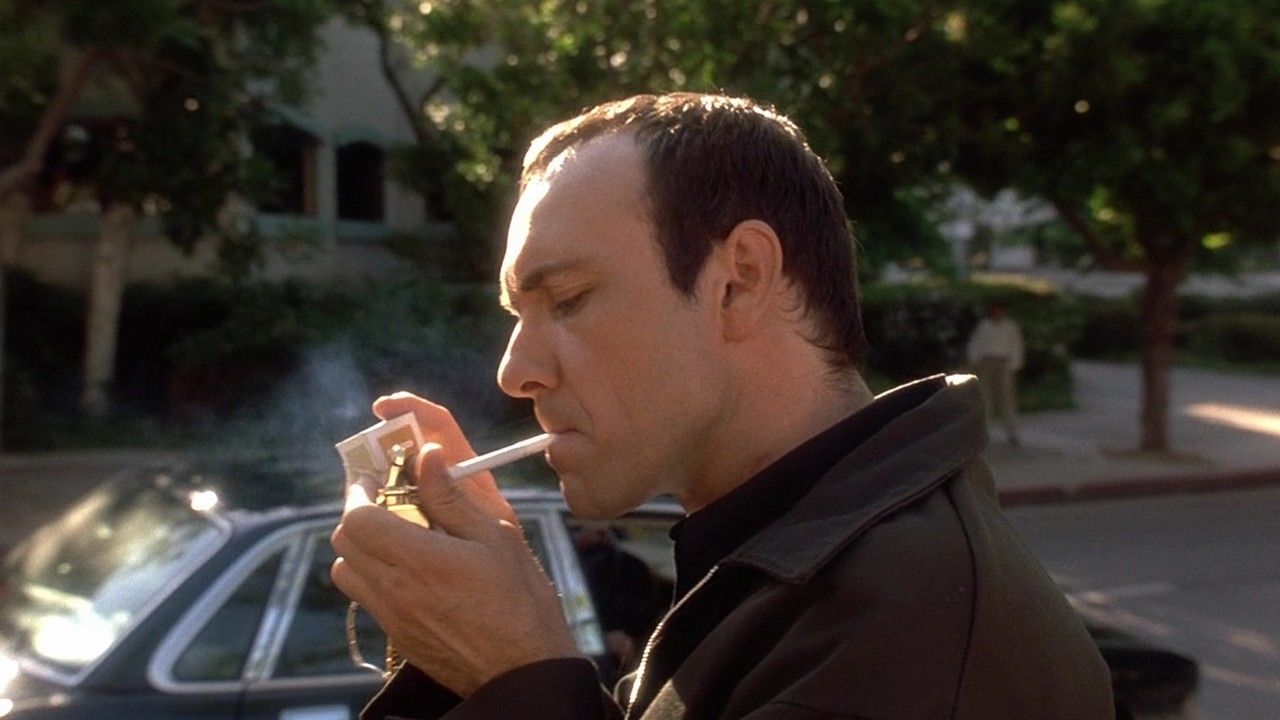The Usual Suspects turns twenty this weekend, and while that far exceeds the statute of limitations on spoiling an ending, I say to spoilerphobes who haven’t seen the movie: stop reading now, because this article is all about one of cinema’s all-time great twist endings and why it still works today.
[Spoilers Ahead]
I’ll admit that the spoiler warning is a bit odd because, as director Bryan Singer and screenwriter Christopher McQuarrie point out in their commentary track, they show you the truth, and then spend almost two hours trying to convince you that you saw something else, and then, in less than five minutes, complete re-frame the entire story yet again. It’s a film that delightfully messes with the audience by not only presenting an unreliable narrator, but also by showing the dangers in demanding to be fed a certain story.
The Ending
Before we get started, here’s the ending in case you needed a refresher on how beautifully it plays.
The Opening
The opening perspective is kind of a mess because Singer wants to try and establish an objective reality, but also later sell us that this was Verbal’s perspective [Note: When I say “Verbal”, I’m referring to the character as if he were a genuine person and not a cover for Keyser Söze]. We get a close-up of Keaton’s face when he’s on the boat, and the camera can go anywhere, so from a cinematic standpoint, the direction should be telling us what objectively happened.
The next scene gets confusing because we move to Verbal giving his deposition to the district attorney, but we don’t know if what we’ve just seen is from his statement or if his statement begins once he’s introduced. Even when Kujan reads from the statement, “You saw a man in a suit with a slim build… you told the D.A. you didn’t know who it was,” it’s not entirely clear how much of the intro is from Verbal’s POV.
So the opening sticks us in the middle of two half-truths: 1) Verbal relating what actually happened and just leaving out his identity, and 2) Kujan believing the opening scene to be a lie because Keaton is Keyser Söze. How much of Verbal’s tale happens to be true is a mystery, especially since he paints Keaton as a sympathetic figure and Kujan sees Keaton as a “coldhearted bastard.”
Singer digs himself a hole, and then tries to play like he’s provided a twist—Keaton was a mythological crime lord! The savvy detective figured it out! It’s an ending of sorts. Not one that will blow your hair back, but one that, based on what we’ve seen and what we’ve been sold, is an acceptable conclusion despite the opening of the film telling us that it’s impossible…unless Verbal is lying.
The Power of the Unreliable Narrator
I’m a huge fan of unreliable narrators in cinema because they’re a lie wrapped inside of a lie. Cinema is the illusion of objectivity even though hundreds of choices go into every shot and every cut in order to tell a story. It’s manipulation at its finest, and then when a manipulator goes inside of it, especially one as skilled as Kevin Spacey at the top of his game, a movie can send you for a loop.
While I love watching Spacey smarm and strong-arm his way through House of Cards, his work in The Usual Suspects is far more captivating because it showcases a different kind of power, and his performance still works once you know Verbal is Keyser Söze. The actor never obfuscates or tricks the audience; what once looked like boredom now comes off as observation, but never in an obvious fashion. What was previously Verbal taking an innocuous sip of coffee later becomes clear that he was looking at the bottom of Kujan’s mug and pulling the name “Kobayashi.”
To sell power in weakness is Spacey’s gift here. He’s not just selling a “weak, stupid cripple”, but also someone who’s heartbroken. He needs to sell the power of everybody else, but also leave detectible lies inside of his larger lie so that Kujan can feel satisfied by sussing out that the idea to hijack New York’s Finest Taxi Service was Keaton’s, not Verbal’s. Spacey had to be careful never to overplay his hand, but also not get lost in a caricature of weakness. Even when we know that it’s all an act, it’s still heartbreaking to hear Verbal cry about Keaton, “He was my friend!”
The Greatest Trick
Even knowing that Verbal, and possibly his entire story, is a fiction, The Usual Suspects remains riveting, and the finale is always triumphant. I suspect this is due in part to the editor and the composer being the same person, John Ottman.
That’s a rarity, but Ottman plays the climax of the film like a musical crescendo and turns everything, from the visuals to the dialogue, into notes of a symphony that’s soaring to its conclusion. Everything we previously heard is now being re-appropriated, and this comes after audience members with excellent memories spot that the gold watch Verbal picks up is the one Arturo Marquez had when he was killed and the gold lighter was glimpsed in the opening scene. Singer is still playing Verbal as innocuous even though, like Kujan, we should have been cued in that something was amiss.
Once Kujan realizes that Keyser was using the bulletin board in the interrogation room as fodder for an elaborate tale, a tale meant to feed into Kujan’s anti-Keaton bias, we can see the mastery of the “the devil,” and we don’t care. We’re not angry with Keyser or hurt. If anything, our sympathies lie with a sociopath because he’s a brilliant storyteller. That’s the art of manipulation we love when we see movies, and it’s the misdirection of every talented magician.
While The Usual Suspects isn’t a movie about movies, and is fairly comfortable being a riveting crime yarn, its impact continues because of how it understands the power of storytellers and storytelling, and that how a story is told is arguably more important than the content.
For The Usual Suspects, the greatest trick isn’t convincing the world that the devil doesn’t exist. It’s showing you the power of the devil and putting you in his thrall every single time.



